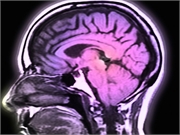Middle-Age Lifestyle Changes Can Cut Women’s Stroke Risk
Effective strategies include quitting smoking, starting exercise, maintaining healthy weight, eating healthy food
Neurologic Effects Seen in a Third of Hospitalized COVID-19 Patients
Manifestations include acute cerebrovascular diseases, impaired consciousness, skeletal muscle injury
Air Pollution May Hasten Cognitive Decline in Older Adults
Higher exposure linked to lower scores on thinking and memory tests and faster cognitive loss over time
Maternal Obesity May Be Related to Risk for ADHD in Children
Risk seen for mothers with body mass index of 25 and greater; paternal obesity not a factor
Heavy Drinking Tied to Larger Waist Lines, Higher Stroke Risk
Higher prevalence of cardiovascular risk factors seen even for those who stop drinking heavily by age 50
Risk Score Can Predict Long-Term Multiple Sclerosis Progression
Secondary progression score based on five clinical risk factors
Brain Changes From Multiple Sclerosis May Occur in Preteens
Greater genetic predisposition for MS tied to imaging-observable changes in white matter in preteens
Majority of Physicians Report Serious Concerns About COVID-19
National survey shows concerns regarding adequacy of supplies and COVID-19 testing
American College of Cardiology, March 28-30
The American College of Cardiology 69th Annual Scientific Session and Expo The annual meeting of the American College of Cardiology was held virtually...
Autism Rates Inversely Tied to County’s Wealth
Wealthy California parents may have more access to private care, treatment



















